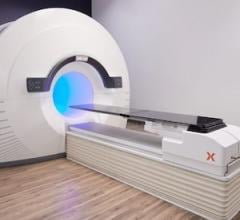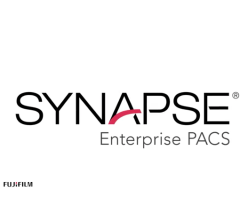![data showed that CytoSite’s Granzyme B (GzmB) PET imaging using [68Ga-NOTA]-hGZP (CSB-111) was feasible and safe in human subjects. These data come from a Phase I trial assessing the safety and feasibility of GzmB PET imaging in subjects with melanoma and non-small cell lung cancer (NSCLC) receiving KEYTRUDA (pembrolizumab).](/sites/default/files/styles/content_large/public/Cytosite.png?itok=ofNBg9J3)
December 14, 2022 — CytoSite Bio, a company developing precision imaging products that determine patient response to immuno-oncology therapy today shared new data at the Radiological Society of North American (RSNA) Annual Meeting in Chicago, IL. In an oral presentation titled “Interim analysis of a first-in-human first-in-class phase I study of Granzyme B PET imaging for assessing single agent immune checkpoint inhibition response in melanoma and non-small cell lung cancer,” data showed that CytoSite’s Granzyme B (GzmB) PET imaging using [68Ga-NOTA]-hGZP (CSB-111) was feasible and safe in human subjects. These data come from a Phase I trial assessing the safety and feasibility of GzmB PET imaging in subjects with melanoma and non-small cell lung cancer (NSCLC) receiving KEYTRUDA (pembrolizumab).
“The interim analysis of data in the first eight subjects who underwent imaging from this study clearly demonstrates the promise of Granzyme B PET imaging as a tool to optimize cancer immunotherapy treatment decisions,” said Ryan Sullivan, MD, Associate Professor of Hematology & Oncology at Massachusetts General Hospital and Principal Investigator of the study. “This non-invasive approach has the potential to inform physicians of the efficacy of the immunotherapy within weeks of the first immunotherapy dose rather than waiting for several months and often multiple scans to confirm response or progression, allowing for a rapid change in treatment which could save lives and transform the immune-oncology landscape. I am pleased that these early, promising data are showing how that option could become a reality.”
CSB-111, a radiopharmaceutical which identifies Granzyme B released from the NK and T-Cells in the tumor, was shown to have favorable biodistribution and rapid clearance. Interim analysis of the first eight subjects showed that all tolerated the imaging well. As expected, subjects that showed robust uniform uptake above the blood pool in the lesions showed treatment response to ICI with continued disease remission during the 6-month follow-up, while subjects with low-level lesion uptake clearly below the blood pool level had progression on therapy.
“The data presented today validate CytoSite’s belief that our work to use PET imaging to detect Granzyme B has the potential to transform outcomes in immuno-oncology,” said Jim Jenson, PhD, Co-founder and CEO of CytoSite. “If approved, our proprietary biomarker and approach to imaging could provide better tools for our oncologists to enable improved outcomes for patients with cancer and rapidly expanding options for new immunotherapies. These data represent a fantastic step toward our ultimate goal, and we look forward reporting results from our Phase 1/2 study upon study completion.”
For more information: https://www.cytositebio.com/


 February 13, 2026
February 13, 2026 









